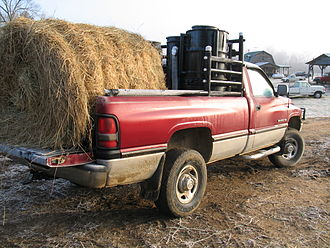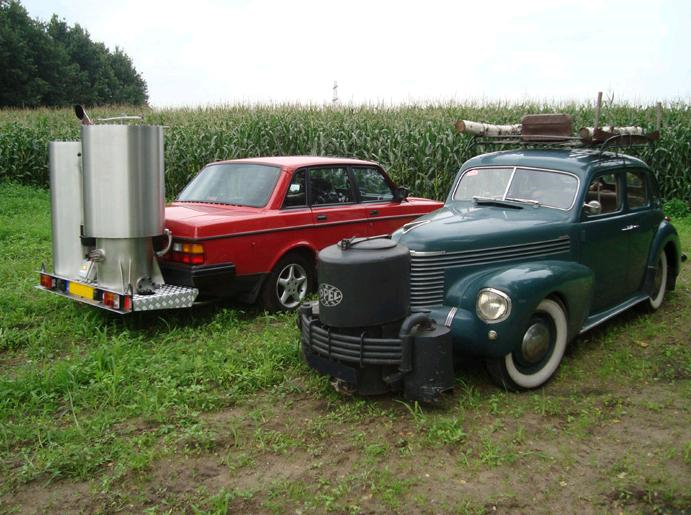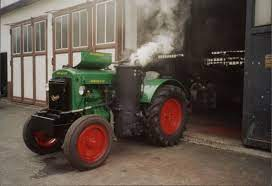I am writing a scifi story in which Earth's orbit has been altered, making the planet generally colder. This has made the northern hemisphere, as well as most of the southern, practically inhospitable.
Due to this, most of humanity died and took the global distribution chains with them. A couple centuries later, people have all the technological knowledge of the 21st century available to them - at least what can be salvaged from books - but no access to the materialized technology itself. You will hardly be able to use gasoline if you aren't able to drill for oil and send it to a refinery. Even if you had the materials to rebuild the infrastructure, most people live in settlements of no more than a few thousand at most, struggling with basic agronomy - so using oil for energy isn't economically viable.
One settlement in my world, though, has a few hundred thousand people in it, with many of them being scholars and scientists. They should be able to build at least a few machines powered by internal combustion or electricity. I am considering options for a viable source of fuel.
I know that automotive ethanol can be extracted and refined from plants. The most important sources in our own world are sugar cane in Brazil and corn in the US. Sugar cane is not an option in my worldbuilding due to a lack of tropical climates though.
Then there is biodiesel, which can be made from some oily plants, and I've read it can also be made out of animal fat.
So, supposing the following conditions:
A settlement in a climate with temperatures varying from approximately 0C (32F) to 15C (59F) throughout a ~400 day-long year, at latitude 3 degrees South - very little variation in day length, but the distance from the Earth to the Sun varies from 1 AU to 1.3 AU.
There are enough arable lands and enough people to work on them to keep everyone fed. Plants and cattle could be grown and raised for energy sources.
The settlement needs to have between 20 and 60 car-sized vehicles moving, possibly a small train - no need to make this comfortable, they might be running in experimental and/or spartan conditions.
What would be the best biological source for fuel? Best not in terms of power density or performance, but in terms of "a post-apocalyptic settlement would be able to make it and use it".
Or - frame challenging myself here - are sustainable, biological sources just not viable, making steam power fueled by coal or wood preferrable?



